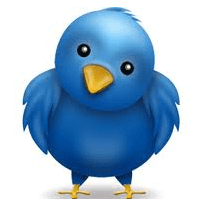… and what you should do about it
Working with a team of Australian-based MasterChef fans, I wasn’t surprised to see my Twitter feed fill up with #masterchef tweets on Sunday night. What I was surprised to see, however, was that it wasn’t all positive.
Channel Ten’s decision to insert an episode of its new reality offering into the four hour long finale of MasterChef has been slammed by viewers, media commentators and rival channels alike. I’ve even heard one refer to the channel’s decision as evidence that they are ‘lumbering and particularly stupid dinosaur’. Ouch.
Unfortunately, these were kind words when compared to the comments spinning around the Twitter-verse. Peeved TV viewers took to social media to vent their outrage, and #masterchef was trending for all the wrong reasons.
Out of interest, I headed over to the Channel Ten Twitter page. Nothing. The viewer tweets carried on into the night. Retweeting was rife. Commentary about their ill-advised programming decision far outweighed tweets about the eventual result. But @ChannelTen remained silent.
And so the comments, commentary and complaining rolls on. The media’s even joined the party, choosing to focus their reports on the Twitter storm, rather than the winner.
While it is true that sometimes, the most dignified thing you can say is nothing at all, social media introduces a whole new ingredient into the PR mix. It spreads like wildfire, and left to its own devices can devastate an online corporate image much quicker than most people realize. You only need to look at the BP Oil Spill Twitter crisis to realize the importance of having a good social media disaster plan.
While you can’t completely reputation-proof yourself, you should include disaster planning as part of your initial social media strategy….to save time and reputation, when the worst occurs.
– Create an outline of ‘who’ and ‘what’. Make a list of the possible situations, and a rough outline of who is authorized to respond and what they will say. Social media moves quickly, and in many cases, an issue can be defused if you act quickly. A Saturday morning flare-up will not wait until your Monday morning meeting.
– Make friends with key influencers. It not only helps boost your social ranking, but they can help spread your response or address inaccuracies.
– Ensure you are prepared to admit when you are wrong. Transparency and authenticity are demanded in the social media arena, particularly when things go wrong.
– Encourage interaction with your fans and followers. It’s called social media for a reason. If you talk to fans, ask questions and engage, they’re more likely ask rather than point the finger, and will alert you if they see something suspicious.
– Dedicate some web space for an official company response. It’s impossible to address all concerns or issues in 140 characters or less. Find a section of your website or blog, to post updates as the issue progresses, or your statement/resolution to direct traffic to. Never underestimate the importance updates and information has on calming a situation.
While it’s impossible to please everyone, Channel Ten could have gone a long way towards repairing the relationship by interacting, addressing concerns and taking on feedback. But in the apparent radio silence, it’s back to a whole lot of cynical tweets from MasterChef viewers, ensuring that the 2011 season will be remembered as ‘the year Channel Ten really stuffed it up’. (Which is an actual tweet!)
What social media disasters have you seen? Do you have an example of one that’s been well managed? Does your company have a disaster plan in place?

